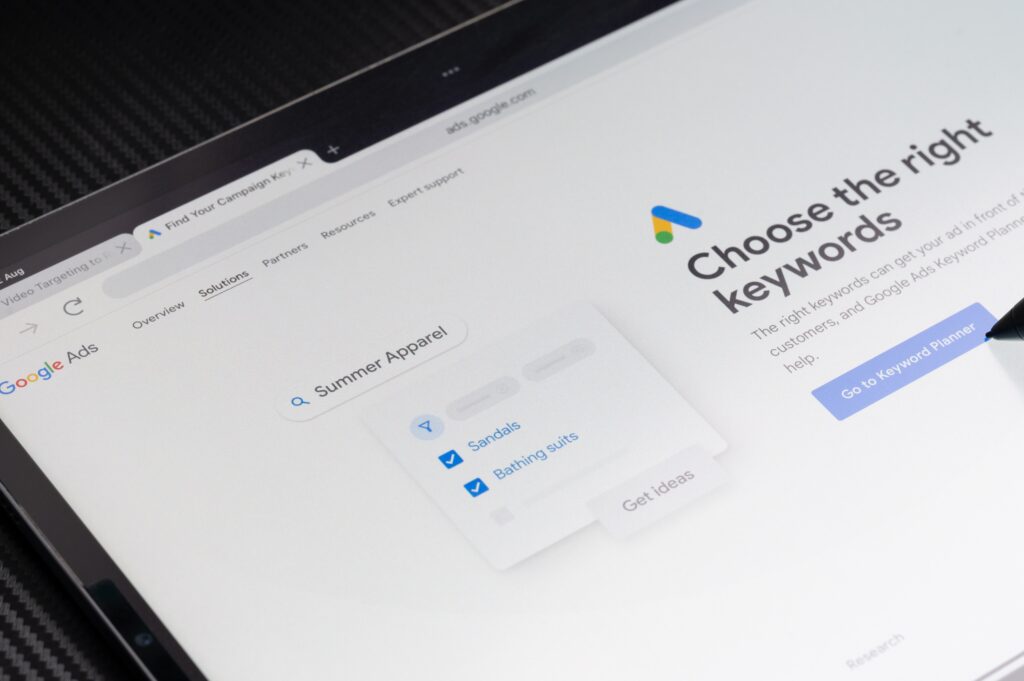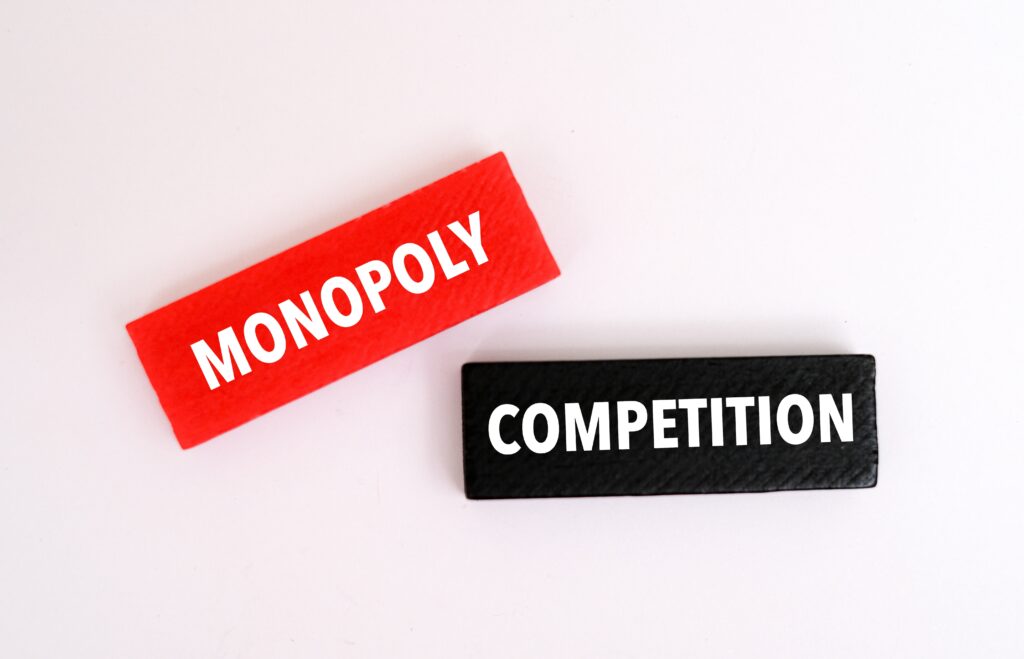Speak To An Expert Now: 215-946-1046

Capturing Leads with Compelling Content
Are you looking for an effective way to generate leads and engage your audience? Content is one of the most reliable methods to attract potential

In a landmark case that could reshape the advertising technology (adtech) landscape, the United States District Court for the Eastern District of Virginia recently found that Google LLC violated United States antitrust law by maintaining monopolies in key sectors of the digital advertising ecosystem. The ruling, based on evidence and arguments brought forward by the United States Department of Justice (DOJ) and several state attorneys general, asserts that Google engaged in anticompetitive behavior through its ad exchange, DoubleClick, and Google Ad Manager platforms. This includes the
where the DOJ challenges Google’s advertising dominance.
Presided over by Judge Leonie Brinkema, this case marks a crucial point in the history of competition law enforcement in the U.S., evoking comparisons to the Standard Oil breakup and the Microsoft case of the early 2000s. The decision could reshape the way advertising revenue flows through the world wide web, setting new precedents for how big tech operates across industries and redefining market competition for the digital age.

The heart of this legal battle lies in the Sherman Antitrust Act, a cornerstone of U.S. competition law designed to prevent monopolistic practices and promote a healthy, open marketplace. The plaintiff, the United States Department of Justice, argued that Google abused its dominant position in digital display advertising by engaging in illegal tying and self-preferencing behaviors—most notably linking its ad exchange (AdX) to its publisher ad server (DoubleClick for Publishers, or DFP), now part of Google Ad Manager.
This complaint accused Google of using its control over multiple layers of the advertising technology stack to stifle competition, control inventory, and manipulate auctions to favor its own advertising products. The court found that these behaviors limited publisher choice, reduced transparency, and increased advertising fees, all to the detriment of the broader advertising market.
The summary judgment in favor of the DOJ may lead to structural remedies, including potential divestitures of key Google businesses like AdX or DFP, echoing historical antitrust actions against firms like AT&T and Standard Oil.
Understanding the tools involved is critical for marketers and advertisers:
By allegedly forcing publishers to use both DFP and AdX in tandem, Google restricted their ability to access competing ad exchanges like The Trade Desk and Meta Platforms, thereby inflating its own advertising revenue while limiting market innovation.
The trial featured explosive depositions and testimony from current and former Google executives, along with industry experts in economics, advertising, and digital policy. Expert witnesses like Herbert Hovenkamp laid out detailed analyses of Google’s relevant market control, and closing arguments pointed to internal Google communications that seemed to prioritize advertising revenue over fairness or transparency.
Among the most cited evidence was Google’s decision to thwart header bidding, an innovation that enabled publishers to bypass AdX and gain access to a broader range of advertisers, increasing revenue and competition. The court ruled that Google’s efforts to suppress header bidding were particularly damaging to market dynamics.
This decision could lead to the unbundling of the Google ad stack, encouraging diversification in the online advertising business. Marketers will need to rethink their media buying strategies, potentially favoring neutral ad exchanges or independent ad tech tools over Google’s now-questioned platforms.
If enforced, divestitures could lower advertising costs as new and existing platforms compete more aggressively on price, features, and transparency. Expect to see the emergence of more advertisement tools focusing on consumer privacy, data ethics, and better auction mechanics.
As marketers diversify away from Google’s integrated stack, they may need to familiarize themselves with multiple tools and web browsers, including those powered by generative artificial intelligence for ad targeting and inventory management.

For home services businesses—like HVAC, plumbing, roofing, and cleaning—this ruling could be a game changer.
The court decision may lead to lower cost-per-click (CPC) rates if increased competition reduces ad serving fees. This could translate into more affordable local advertising and higher return on investment (ROI) for home services marketers.
As new exchanges enter the market, home services businesses could gain access to local inventory traditionally dominated by Google, especially through mobile ads on platforms beyond Google Chrome and Android.
These companies will need to explore new tools outside the Google ecosystem—like partnering with trade associations, investing in newsletter strategies, or using emerging advertising servers compatible with multiple browsers like Safari, Firefox, and Mozilla.
For lawyers, legal practices, and professional services (consultants, accountants, etc.), the implications are equally profound.
Legal marketers have long relied on Google Search and display ads to target users in need of services. This ruling may unlock better audience segmentation options from competing platforms, increasing precision in lead generation.
The Google Privacy Policy and opaque bidding rules often restricted law firms in regulated sectors. With new options, lawyers may advertise more freely while staying compliant with legal advertising laws and data regulations.
With the rise of generative artificial intelligence, legal advertisers could combine contextual targeting with AI-generated content to create more personalized ad experiences, potentially increasing conversion without depending on Google’s centralized data model.
The health and wellness industry—spanning fitness centers, nutritionists, supplement brands, and holistic practitioners—will likely experience several benefits and new responsibilities.
Consumers in this space demand transparency and data privacy. As the advertising ecosystem shifts toward consumer-first models, health brands can align their advertising behavior with values of honesty, information security, and consumer empowerment.
Previously priced out of certain digital display advertising spaces due to high fees and competition, wellness brands may now find inventory available on independent ad servers and platforms optimized for affordable reach.
With more ad exchanges emerging post-ruling, wellness brands can explore partnerships with ethical publishers, organic content networks, and generative AI solutions to craft tailored messages that resonate.
This ruling is a win for publishers, many of whom felt squeezed by Google’s fee structures and control over auctions. Media companies like Gannett and Reuters, along with visual content platforms like Getty Images, have advocated for a more equitable advertising system where they can negotiate price, maintain editorial independence, and reclaim control over ad monetization.
The Trade Desk, Meta Platforms, Amazon, and smaller ad networks could gain significant market share. These players may invest in more innovative, AI-driven, and transparent platforms that challenge Google’s supremacy.
This case sets a precedent for how regulatory affairs are conducted in the digital age. The role of the Federal Trade Commission (FTC) and DOJ is expanding beyond traditional monopolies to digital platform ecosystems, with potential implications for Meta, Apple, and Amazon.
Although summary judgment has favored the DOJ, Google representatives have announced plans to appeal. Whether remedies will involve contract restructuring, platform separation, or outright divestiture, remains to be seen. The burden of proof now shifts toward remedy implementation—a process that may involve jury trials, motions, and ongoing discovery.
The possibility of tariff-like structures, platform neutrality mandates, and even algorithm disclosure requirements have been floated by legal scholars and witnesses during the trial. Regardless of the outcome, the direction is clear: competition, transparency, and consumer empowerment are now the new standards.
The Google antitrust case is more than a lawsuit—it’s a turning point for how advertising technology, search advertising, and online business models operate. For businesses, marketers, publishers, and tech companies, this is a clarion call to adapt, diversify, and rethink reliance on a single provider.
Those who understand this evolving landscape—and act decisively—will thrive in a more open, competitive, and consumer-friendly ad ecosystem.
In today’s rapidly evolving digital landscape, staying ahead requires more than just keeping up—it demands proactive, strategic partnerships. 1SEO Digital Agency stands as a beacon for businesses aiming to navigate the complexities of online marketing with precision and innovation.
Established in 2009 and headquartered in Bristol, Pennsylvania, 1SEO Digital Agency has cultivated a reputation for delivering comprehensive digital marketing solutions that drive measurable results. With a robust team of over 100 seasoned professionals, including SEO and PPC specialists, web designers, content creators, and client relationship managers, the agency is well-equipped to tackle the multifaceted challenges of the digital realm.
1SEO offers a diverse array of services designed to enhance your online presence and boost your business’s bottom line:
1SEO’s tailored approach extends to various industries, ensuring that strategies align with specific market dynamics:
1SEO’s commitment to excellence is reflected in its accolades and partnerships:
In an era where digital presence is paramount, partnering with a seasoned agency like
can be the catalyst that propels your business to new heights. Their comprehensive services, industry-specific expertise, and unwavering commitment to client success make them an ideal partner in navigating the digital marketing landscape.
For more information or to schedule a consultation, visit 1seo.com.

Are you looking for an effective way to generate leads and engage your audience? Content is one of the most reliable methods to attract potential

Understanding Zero-Click Commerce in the Digital Economy In the evolving landscape of ecommerce, the way customers shop has undergone a seismic shift. Traditional online shopping